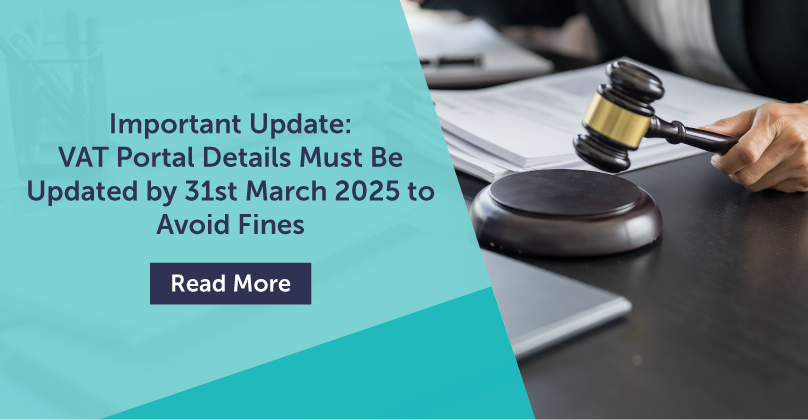
- Feb 14,2021
- Audit / IFRS
Roles of an Accountant in Your Organization
The role of the accountant is becoming more dynamic in nature, the 5 Major Roles of An Accountant in your Organization is Management of Money in (Receivable), Money out (Payable), Payroll, Financial Reporting & Financial Controls.
“Debit What Comes in: Credit What goes out” Golden rule and base of an Accountant, is this principle is enough to perform accounting or accounting services in Dubai or to be a professional accountant in Dubai? definitely answer is “No”.
Accounting today is not like as previous, it is a multidimensional field that keeps growing daily which means a professional accountant should also grow up with the profession by learning current trends and updates.
Finance is the lifeblood of business, a good accountant can do much more than the arithmetical calculations, they can provide invaluable insight to current trends and expose financial reporting inconsistencies.
Since 2018 UAE implemented Tax Laws, it is mandatory to keep proper books to rely on up with the law.
Manual Bookkeeping has become a thing of past in accounting and accounting services due to the proliferation of technologies, customized software is readily available in the market to perform accounting services that save time and ensure accuracy.
The initial purpose of having the accountant from a businessman was just to understand the profitability of the business and to understand the financial position but now the role has been changed, financial planning is a necessity for survivals.
International software’s from SAP, Oracle, Sage, QuickBooks, Peachtree, Dynamics to regional specific software like Tally, Focus, Zoho, Xero etc are using for meeting the requirements of a business firm.
Nowadays most of the MNCs are promote and follow “MIS Reporting” culture.
The role of the accountant is becoming more dynamic in nature,
The 5 Major Roles of An Accountant in your Organization
Management of Money in (Receivable), Money out (Payable), Payroll, Financial Reporting & Financial Controls.
1) Accounts Receivable
Accounts receivable are that money a company owes from the third party in the sake of providing goods or services. Third-party may be the customers, any other companies, or institutions. It provides a track of money that third parties owe to you.
Accounts receivables are the part of the current asset and it shows on the Asset side of the Balance Sheet. Managing Accounts Receivable includes invoicing, payment follow up, ageing reports and responds to all type of accounts related inquiries. The accountant should reconcile receivables on time and keep the transaction record/complete ledger of each customer.
2) Accounts Payable
Accounts payable are that money a company owes to the third party in the sake of receiving goods or services. Third-party may be the customers, any other companies or institutions. It provides a track of money that you owe to the third parties. Accounts payables are the part of current liabilities and it shows on the Liability side of the Balance Sheet.
Managing Accounts Payable includes supplier/vendor invoice verification, vendor statement reconciliation, timely execution of payment as per credit terms, preparing supplier/ payable ageing reports and resolving disputes with suppliers or agents.
3) Payroll
The accountant should ensure all employees in the organization are getting paid accurately and timely, and he/she is responsible for booking all payroll information including salary payment, deductions, advances, leave payments etc and maintaining payroll files and reports of each employee.
Maintaining Staff records includes payroll preparation, leave settlement and gratuity calculations.
4) Financial Reporting
The duty of the Accountant not ending with receivable and payable management, the accountant should report the end results to the top management in a proper manner for planning and decision making.
Financial reporting includes Profit and Loss A/c, Balance Sheet and Statement of Cash Flows. These reports acting as communicators with internal and external parties including investors, banks, customers etc.. It plays a vital role in decision making.
5) Financial Controls
Financial controls are the rules and procedure implemented to control and manage finance. These policies are aims to achieve organizational goals through proper monitoring and controlling.
Financial controls ensure the integrity of financial and accounting information, promote accountability, and prevent fraud. The Accountant should follow GAAP standards and principle. The role of the financial controller is to ensure procedures are set up properly to manage the process without errors.
An Accountant plays a vital role in a running business through proper control of finance. Earlier the duty and responsibilities of an accountant limited to record business transactions and find the profitability of the firm, but now the role has been increased to budgeting, analysing, costing etc..
The UAE has a mighty powerful SME sector, and most of the time accountant is the finance managers of the company. UAE follows international accounting standards and hence the knowledge in them are very important in maintaining books of accounts. A good Accountant should regularly monitor and study the changes in the business sector and at the same time implement the necessary changes in his/her organization at the right time.
Accounting and Book-Keeping Services in the UAE
For Accounting and Book-Keeping Services - Professional top quality accounting and book-keeping outsourcing services in Dubai, UAE.
Mr. Praveen | Senior Manager
Mob: +971 508873115
Email: praveen@claemirates.com




